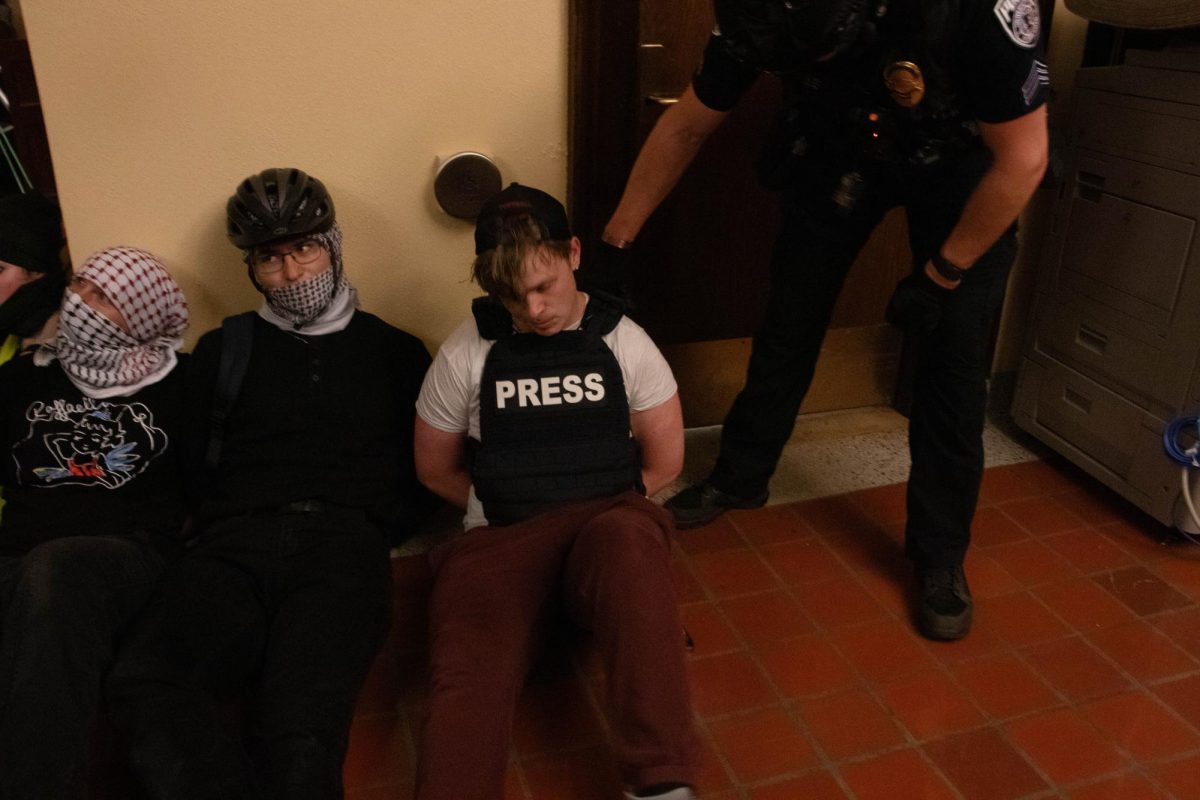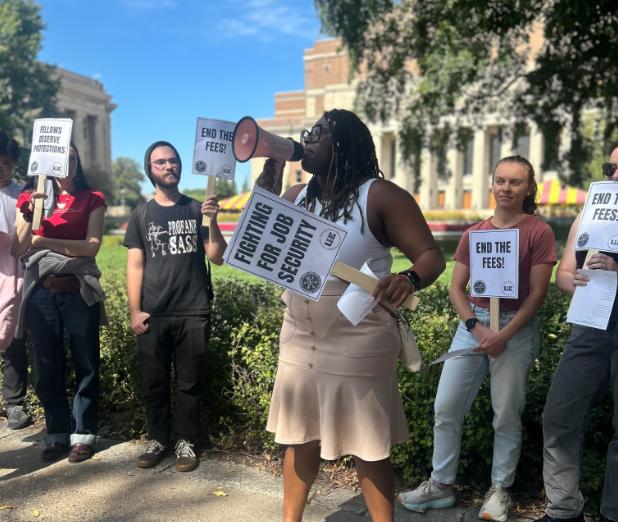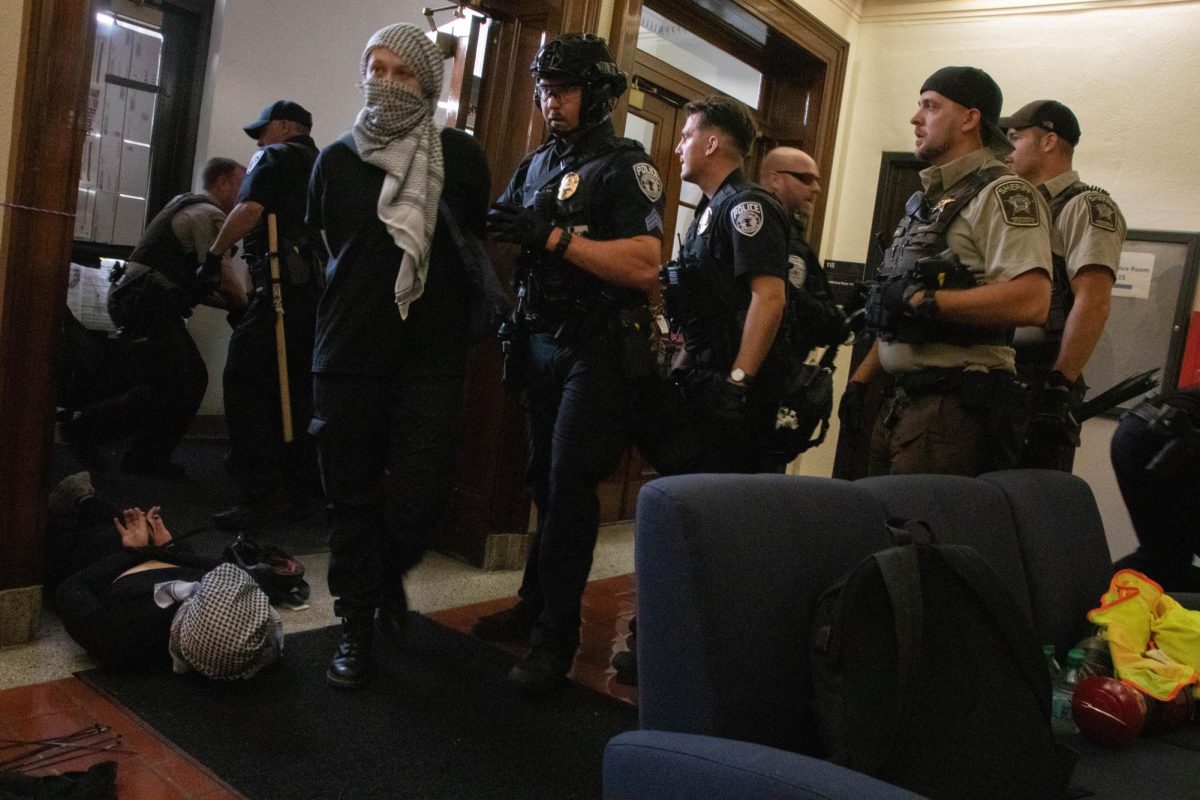Many University of Minnesota students encounter difficulties with the introductory chemistry courses required to go on to more advanced coursework in many science majors.
Instructors, for courses like Introduction to Chemistry (CHEM 1015), Chemical Principles I (CHEM 1061) and Chemical Principles II (CHEM 1062), have implemented strategies and new curriculum to help students in the classes.
Arya Lucht, a second-year ecology student who took CHEM 1015 and is now enrolled in CHEM 1061, said it is hard to learn in the chemistry classroom.
“There is no engagement within the classroom,” Lucht said. “It is mostly students working in groups and completing worksheets, and there is no involvement with the teacher.”
Most classes range from 100 to around 350 students with some sections offered online and some in-person. One section of CHEM 1015 offered online has a maximum capacity of 900 students.
Lucht added she often hesitates to ask her instructors for help due to fear of her concerns not being heard.
“When you do try to reach out to them and ask for help, they seem very condescending, especially in emails,” Lucht said. “So it’s not very encouraging to reach out for help in an environment like that.”
Michelle Driessen, the University’s general chemistry director and professor of CHEM 1015 and CHEM 1061, said she has implemented active learning in her classroom since 2012.
Driessen added her students watch lecture content before coming to class. Once in class, students complete worksheet problems together and she goes around the room to help them understand specific topics.
“It is really annoying when we are just given the worksheets to do in class,” Lucht said. “There is no question and answer or, ‘Hey, here’s a problem, let’s work on it together and then go over the answer,’ there’s none of that.”
Alex Wu, a first-year pre-med student currently taking CHEM 1061 completely online, said he struggles with the overall structure of the course.
“Oftentimes, the lectures will rapidly skim over topics, and the textbook has little to no relevance as to what is mentioned in the lecture,” Wu said.
Wu added he struggles with the lack of sample answers provided for the homework since it aids his understanding of the material.
“I don’t know if I have the full conceptual understanding of the topic, and at worst, I have an incorrect understanding and don’t know because I have no answers or anything to compare it to,” Wu said.
Emily Pelton, an assistant chemistry professor who also teaches sections of CHEM 1015 and CHEM 1065, said strategies students used in high school may not work in college.
“I really encourage students to work on little chunks of material over an extended period of time,” she said.
Pelton added she has implemented several Canvas site strategies designed to help her students.
Lee Penn, the director of undergraduate studies in the Department of Chemistry, said as of this semester, CHEM 1061 includes a new paradigm called Chemistry, Life, the Universe and Everything (CLUE).
Driessen said the CLUE approach builds from the basics and incorporates the background students have in science.
“We start with first principles and things that students have seen before, probably in physics or math, and we really keep coming back to those and revisiting them,” Driessen said.
Driessen added this approach makes the progression of topics more fluid and logical.
“The other piece we have embedded is learning assistants in the classroom to help students work on some of these ideas,” Driessen said.
Christine Yao, a third-year student who took all three introductory courses and is now a learning assistant for CHEM 1061, said she struggled in the courses but eventually overcame these challenges.
“As a learning assistant, I wanted to be a resource for other students that would come in and take this course,” Yao said. “I wanted to help students that were struggling like myself to feel confident in their chemistry abilities and be more enthusiastic about chemistry in general.”
According to Yao, the Chemistry Tutor Room in Smith Hall is a resource for students to drop in and get the help they need.
Driessen added the chemistry department is working hard to improve these courses, but they have resource constraints.
“We are using evidence-based approaches to really improve what’s going on, not only on the content side,” Driessen said, “but we are also worried about the climate and making sure students feel welcome.”



















Gina K
Dec 10, 2023 at 1:38 pm
Honestly I find these concerns super overblown. Many students are used to breezing through classes in high school and are purely struggling because they’re not used to having to not only put in MORE work, but also to work smarter. They expect easy As based on effort as opposed to real learning. I took the gen chem sequence with Pelton and they were easy classes taught by a good professor – IF you actually take notes in class and put in a reasonable amount of thought to practice questions and homework. Based on personal experience, the people who complain about the difficulty of the general chemistry classes are the ones who don’t succeed in the following courses either. It is okay to admit you don’t get it! It isn’t always the professor’s fault!
Sarah Stadtherr
Dec 7, 2023 at 12:21 pm
WOW – I’m glad I don’t need a Chem class. My comment is more to the article. Michelle Driessen said she’s implemented active learning since 2012. The article could have helped me more by listing what those things were that she added. However, maybe that is only that she added videos and makes herself available in the room? On the same thought process – What has Emily Pelton added to Canvas to help? Shouldn’t those tips/tricks be shared by all Chem instructors/classes?
Morgan Hendricks
Dec 6, 2023 at 9:06 pm
I am an undergrad who will have to take CHEM 1061 next semester and I have already heard a lot of my classmates in my other STEM classes talking a lot about this issue as they work their way through the class. I have to say that the student complaints here are congruent with what the masses have been feeling. While I try to generally take most complaints about classes with a grain of salt until I experience them for myself, these introductory Chemistry classes do not create much excitement to learn, if anything they feel like they will be a burden.
Mick M.
Dec 6, 2023 at 5:54 pm
Really appreciate that this is being discussed. I’m an undergrad who has struggled greatly in this course and will likely need to retake it.
I also find it really difficult how we’re given worksheets with little to no guidance in the classroom. I know that many others also struggle with the class as we’ve learned the class average on exams is usually a D. I didn’t notice the CLUE approach at all this semester, but perhaps that is still upcoming? But our class also did not have any TAs or learning assistants which really spreads the professor thin in a class of 70+ students.
These courses really need to try a much different approach because the current one clearly isn’t it.
Fina Mooney
Dec 6, 2023 at 1:24 pm
I am so glad someone is writing about this. As an undergraduate student, who has taken the introductory chemistry course myself, I have a lot of relation with the student perspective in this article.
Many of my friends and classmates I have spoken to including my sister who has taken these chem courses multiple times just to pass, have expressed a lot of frustration and struggle with the Chem courses in general at the University. Many University of Minnesota students actually take their courses at MCTC and transfer them to the University credits since they are more hands-on with teaching and supportive of the curriculum. I think it’s sad that this is a reality for students and also more difficult, especially for those who have to commute to MCTC instead of the University itself. I truly think this article could and should be something so much bigger for the University. I appreciate that the instructors for these courses were interviewed to get a different perspective for this article, but I still feel like they don’t do justice or solve a lot of the difficulties and lack of support that many students express.
Overall I just wanted to say thank you for finally writing about this, and I hope the university takes this issue seriously for future students!